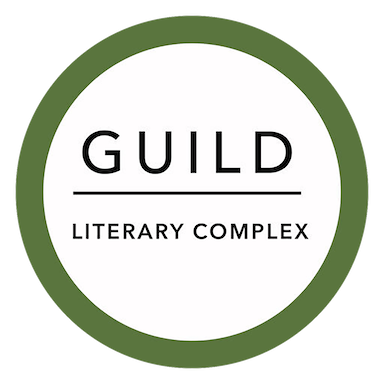
- This event has passed.
Applied Words/social activism
The Guild Literary Complex of Chicago continues its 2012 season with its returning series, Applied Words, which explores creative writing’s intersection with an artistic discipline (e.g. music or visual art) or a non-arts field (e.g. social justice or health). This Applied Words event will explore creative writing as an instrument of social activism – how people are using poetry, prose or theater to provoke social action or effect change in communities’ behavior or perspective. The evening will include an open mic, featured readers Michelle Boyd, Sage Xaxua Morgan-Hubbard and Brenda Parker, and audience discussion. As always, audiences of all backgrounds are welcome.
The event is being co-sponsored by Institute for Research on Race & Public Policy’s Narrative Non-Fiction Working Group at UIC, and the UIC English Department’s Program for Writers, who are sponsoring a pre-reading reception with drinks and snacks.
TIME: 6:30pm drinks/snacks; 7:00 pm reading and discussion
ADMISSION: Free with r.s.v.p. – email kdixon@guildcomplex.org, Subject line: Activism
ABOUT THE WRITERS:
Brenda Parker is an Assistant Professor at UIC. She joined the Urban Planning and Policy Program in January 2008. She received her Masters and Doctorate degrees in Human Geography from the University of Wisconsin-Madison. She received her Bachelors in Public Affairs from the James Madison College at Michigan State University. She has worked in various non-profit organizations and government agencies, and as an independent research consultant and program evaluator. Brenda’s current research areas include urban policy, urban governance, community and economic development, and qualitative methods. She is particularly interested in gender, race, community activism, and progressive politics. She is conducting a research project on relationships between economic development, secondary markets, and space. Previous research has focused on community-based mapping, social justice, and citizenship. She is also exploring how creative writing can be used to communicate research findings and policy recommendations.
Michelle Boyd is Associate Professor in the African American Studies and Political Science departments, and Associate Director for Programs and Partnerships in the Institute for Research on Race and Public Policy at UIC. An urban ethnographer known for her research on the politics of racial identity, Boyd has published in the Journal of Urban Affairs, City and Society and the Urban Affairs Review. Her work has received many honors including Best Paper awards from the Urban Affairs Association and the National Conference of Black Political Scientists. Most recently, her book Jim Crow Nostalgia: Reconstructing Race in Bronzeville won the 2009 Best Book Award in the Construction of Equality and Inequality from the American Political Science Association’s Race and Ethnicity section. Michelle’s current project, “Meet the Budget Cuts,” is an audio documentary that examines the experiences of public employees who’ve lost their jobs due to state budget cuts.
Sage Xaxua Morgan-Hubbard earned her MA in Performance Studies at Northwestern University. She is a graduate of Brown University where she double majored in “Performance Studies: Socially Conscious Art of the Everyday” and Ethnic Studies. She is a poet, activist and teacher from Washington, D.C. She is the founder of WORD! spoken word artists and activists, a former DC poetry slam coach and one of the original members of Spoken Resistance and the performance group Sol y Soul, arts for social change.
ABOUT IRRPP at UIC: IRRPP’s Narrative NonFiction Working Group is a multi-disciplinary, corss-college group of UIC faculty and staff members examinign how scholars can use literary technique to more effectively communicate about race/ethnicity with non-academic audiences.
The PROGRAM FOR WRITERS at UIC is a forum of the Department of English. It offers a PhD in English with creative dissertation and also an MA in English with creative manuscript. The Program for Writers at UIC is one of the oldest PhD-granting writing programs in the country.
